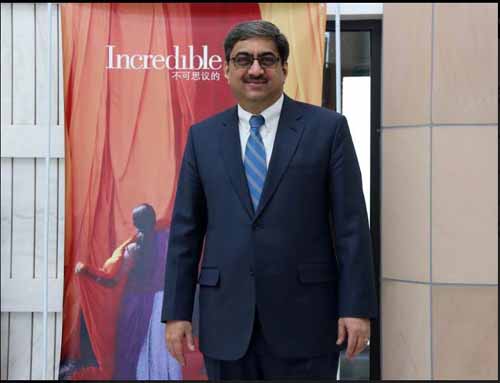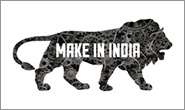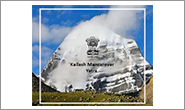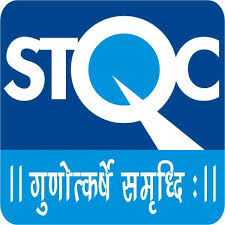Ambassador Bambawale's Interview with China Daily
Published online on 08 June 2018

Q. What kind of role do you expect India will play in the framework of the SCO? What do you expect India will speak for the first time at the Qingdao summit?
A: As you know, India is a new member of the SCO. We are very happy to be a member of the SCO and we are delighted with this development. Since becoming a member, India has participated in almost all the activities and meetings of the SCO. Our Prime Minister Narendra Modi will attend the SCO Summit at Qingdao. He will also have several bilateral meetings with other leaders of the SCO member countries. India will participate enthusiastically in all SCO meetings.
Q. Since the SCO accepted India and Pakistan as its new members in June 2017, the organization has represented over 40 per cent of humanity and nearly 20 per cent of the global GDP. What do you think is the focus of the SCO members in cooperation within the organization in the future?
A: The focus of SCO members is in the areas of security cooperation, countering terrorism, economic development as well as cultural exchange. We will continue to expand our cooperation in these areas. India will work with the other member countries in this direction.
Q. Do you think the SCO faces some opportunities or challenges in the backdrop of the current international situation, particularly considering the rising protectionism?
A: You are correct, the international situation is changing very rapidly. There are almost daily developments around the globe. In such an environment, the SCO has many opportunities to reiterate the values that it stands for, including multi-polarity, the positive effects of globalization, adhering to global rules, working together to uphold existing institutions and contributing positively towards inter-cultural harmony. India believes that the SCO can work towards these goals.
Q. President Xi Jinping and Prime Minister Narendra Modi had an informal meeting in Wuhan in April. How do you appraise this meeting?
A: President Xi and Prime Minister Modi had excellent discussions at their informal summit in Wuhan on 27-28 April 2018. They discussed strategic and over-arching issues pertaining to the international situation as well as regional and bilateral developments. Through this strategic communication, they have been able to reach consensus on many issues including the important role played by India and China on the global stage and the manner in which bilateral relations can be developed in the coming months and years.
I would also like to point out that Prime Minister Modi and President Vladimir Putin had a similar informal summit at Sochi on 21 May, where they discussed how India and Russia view global developments and the position they take on these issues. As all three countries are members of the SCO, we believe that the organization can play an important role in global affairs.
Q. Bilateral trade volume arrived at US$84.4 billion last year and China remains the largest trade partner of India. Are there any potential fields you think China and India can work together to expand win-win economic cooperation?
A: You are right that India-China bilateral trade reached a new peak of US$ 84.4 billion in calendar year 2017. The potential for increasing trade volume between our two countries is huge and we have not yet reached the full potential of our commercial ties.
In 2017, Xiaomi, a well-known Chinese firm, became the largest supplier of mobile handsets in the Indian market. Other Chinese companies such as Huawei, VIVO and OPPO are also doing extremely well. There is also great potential for expanding the exports of Indian IT and pharmaceuticals to China. There are some non-tariff barriers in China which need to be removed for this to happen. We need to move towards more balanced trade between our two countries since only then will our commercial interaction be sustainable.
Q. People-to-people and cultural exchanges are important to bilateral relations. Indian films such as Dangal, HIndi Medium and Baahubali have become very popular in China and won very good ticket sales in Chinese movie market. So how do you suggest China and India should step up bilateral exchanges to enhance mutual understanding between the two peoples?
A: We are very happy to see that Indian Bollywood films have become very popular in China. You are correct that Dangal (called Shuai Jiao Ba, Baba in Chinese) became one of the most popular and highest earning non-Chinese language films in China. Movies will help in increasing understanding between our people and thereby build more mutual trust.
Tourism between India and China is far below its potential and both countries need to focus on how to expand the number of tourists visiting the other country. Such an increased flow of tourists will also lead to building more trust amongst our two countries and our people.
Q. This year marks the 40th anniversary of China's reform and opening-up policy. How do you appraise this policy? How do you think China’s reform and opening-up policy influence India?
A: China's reform and opening-up policy, which was launched in 1978, has been extremely successful in catapulting China into becoming the second largest economy in the world. The standard of living of the Chinese people has risen significantly.
The people of India look at these achievements of China with great admiration. It fills us with hope and expectation that India too can achieve some of the success that China has experienced over these past forty years. It encourages us, in India, to do more to ensure higher growth and better living standards for our people.
***






























